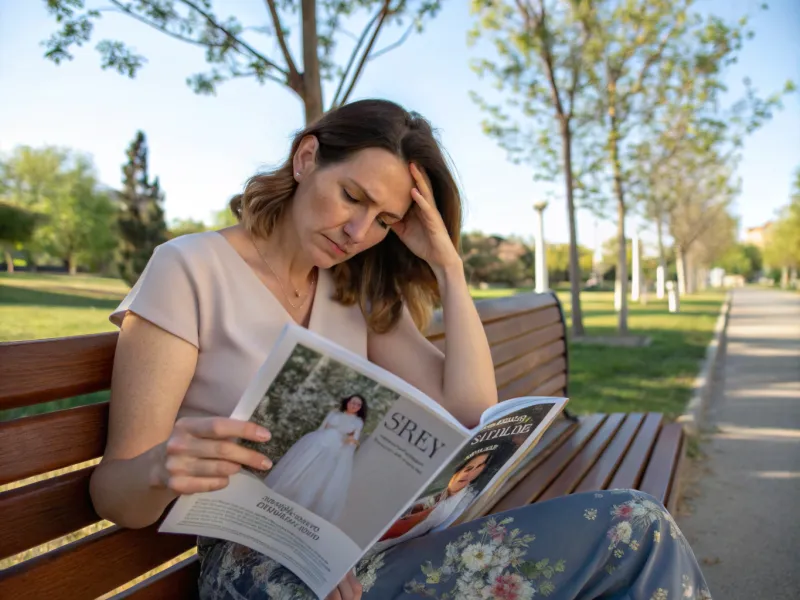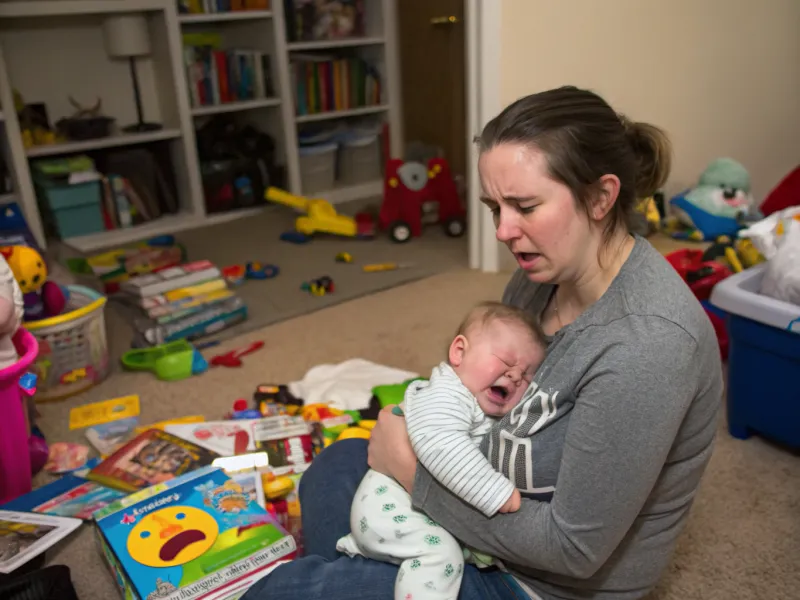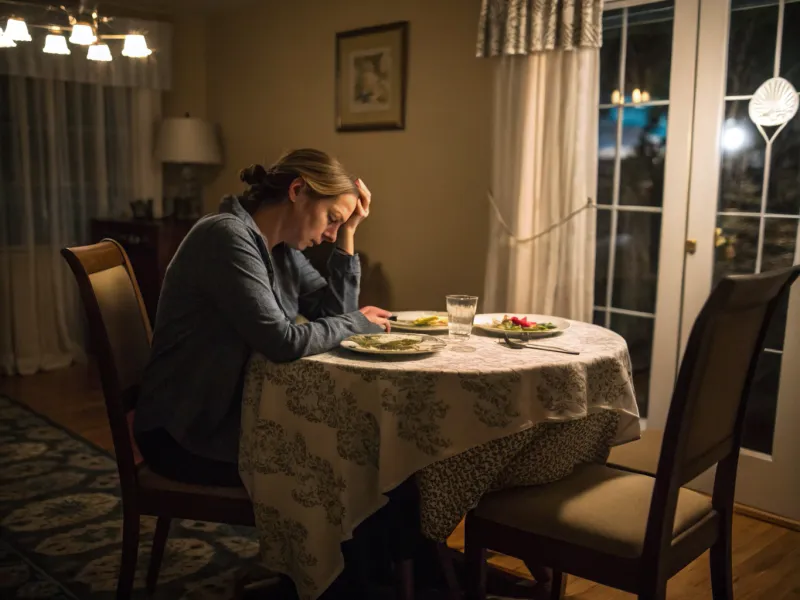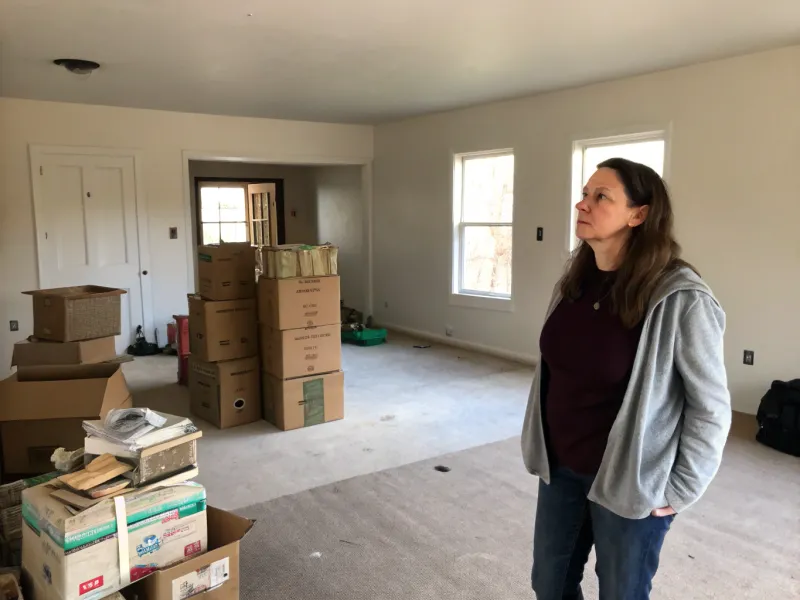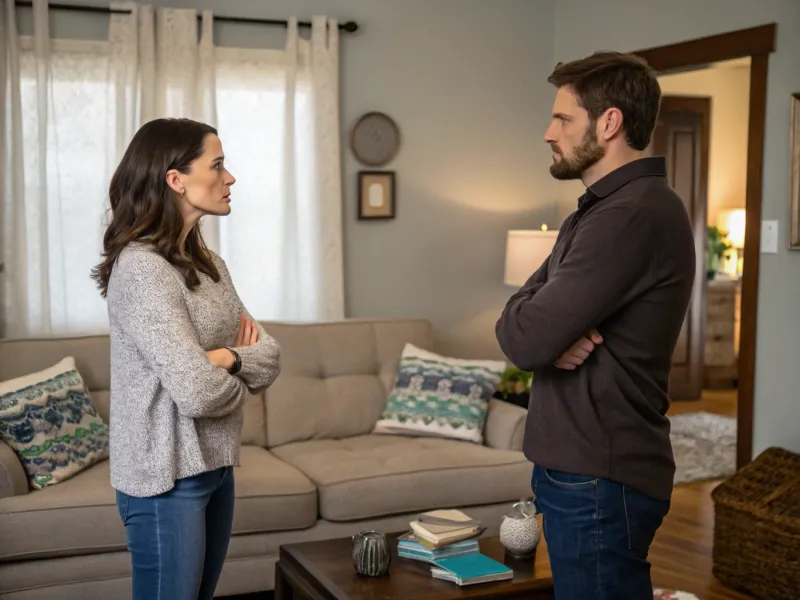Admitámoslo, las conversaciones entre chicas suelen girar en torno a las relaciones, y el matrimonio es un tema candente con frecuencia. Todos hemos oído esas historias -a veces graciosas, a veces desgarradoras- de mujeres que se lo han pensado mejor después de dar el "sí, quiero".
Ya sea debido a expectativas no cumplidas, cambios en el estilo de vida o revelaciones sorprendentes, los remordimientos pueden aparecer de forma inesperada.
Agárrense los sombreros, porque vamos a sumergirnos en el torbellino de las 31 veces que las mujeres se han arrepentido de decir que sí en su matrimonio. Las mujeres suelen arrepentirse de decir que sí a:
1. Un marido con excesivos hábitos de juego
Las finanzas son cruciales en cualquier matrimonio y descubrir que su pareja tiene adicción al juego puede ser devastador. Imagínate esto: estás clasificando facturas en la mesa de la cocina y te das cuenta de que desaparece más dinero del que debería.
Sus promesas de dejarlo se sienten vacías y la ansiedad se convierte en tu compañera constante. Puede sentirse aislado e incapaz de compartir sus preocupaciones con amigos que podrían juzgarle o no comprenderle.
Este arrepentimiento suele llevar a conversaciones difíciles, a buscar ayuda profesional o incluso a reconsiderar el matrimonio por completo. Es una dura lección conocer los hábitos de tu pareja antes de atar el nudo.
2. Vivir en una ciudad pequeña lejos de la familia
Mudarse lejos de la familia puede ser duro, sobre todo si acabas en una ciudad pequeña donde todo el mundo se conoce. La emoción de un nuevo capítulo se desvanece rápidamente cuando te das cuenta de lo aislado que te sientes.
Perderse reuniones familiares y tener que recorrer largas distancias sólo para visitarlas puede poner a prueba la salud mental. Este remordimiento lleva a menudo a añorar el ajetreo de la vida urbana y la comodidad de las caras conocidas. A veces, el encanto de una pequeña ciudad no es suficiente para llenar el vacío que deja el abandono de la familia.
3. Compromiso con las aspiraciones profesionales
Sacrificar los objetivos profesionales por el matrimonio puede dejar un persistente sentimiento de resentimiento. Imagina que una vez soñaste con ascender en la empresa, pero ahora estás atrapada en un trabajo que no te satisface. Los sueños de una carrera profesional acelerada se desvanecen, cambiados por responsabilidades y compromisos domésticos.
Este remordimiento puede cocinarse a fuego lento, estallar en momentos de autorreflexión o al ver a compañeros que consiguen lo que una vez aspiraste. Es un recordatorio de la la importancia de mantener las ambiciones personales junto con los compromisos matrimonialesmanteniendo intacta parte de su identidad.
4. Casarse con alguien con objetivos financieros diferentes
El dinero importa, y casarse con alguien con objetivos financieros opuestos puede causar fricciones. Al principio, los diferentes hábitos de gasto pueden parecer manejables, pero con el tiempo pueden dar lugar a grandes disputas. Ella ahorra para el futuro mientras él gasta libremente, y la tensión aumenta.
Esta situación se traduce en acaloradas discusiones sobre las facturas y los ahorros, en las que cada parte se esfuerza por comprender la perspectiva de la otra. La incompatibilidad financiera es algo que muchos lamentan, lo que subraya la necesidad de hablar abiertamente de dinero antes de casarse, asegurándose de que ambos cónyuges están de acuerdo para evitar futuras discordias.
5. Ignorar las señales de alarma durante el noviazgo
El amor puede impedirnos ver las señales de advertencia que aparecen durante las citas. Muchas mujeres se arrepienten de no haber prestado atención a estas señales de alarmacomo el comportamiento controlador o la falta de respeto. En retrospectiva, las señales estaban ahí, pero se desestimaron como rarezas o errores.
A menudo nos damos cuenta de ello en los momentos de reflexión, cuando el peso de las advertencias ignoradas se hace insoportable. El arrepentimiento surge de no confiar en la propia intuición y permitir que el amor nuble el juicio. Es una poderosa lección sobre la importancia de escuchar las corazonadas y abordar las preocupaciones antes de que se agraven en el matrimonio.
6. Apresurarse a casarse debido a la presión social
La presión social suele empujar a las mujeres a casarse a cierta edad, lo que lleva a tomar decisiones precipitadas. El sueño de una boda perfecta a veces eclipsa la realidad de un compromiso para toda la vida. El arrepentimiento aflora al darse cuenta de que la elección tiene más que ver con apaciguar a los demás que con la felicidad personal.
Puede crear sentimientos de insatisfacción, sobre todo cuando se compara el propio matrimonio con las versiones idealizadas que aparecen en los medios de comunicación. Entender que el matrimonio no es una carrera es crucial, subrayando la importancia de tomar decisiones a nuestro propio ritmo y por las razones adecuadas.
7. Descuidar el crecimiento personal en aras del matrimonio
El matrimonio exige tiempo y esfuerzo, pero sacrificar el crecimiento personal puede conducir al arrepentimiento. Imagina que dejas de lado tus aficiones y pasiones, pensando que ya tendrás tiempo más adelante, y luego te das cuenta de que los años pasan volando. La negligencia hace que te sientas estancado y pierdas el contacto contigo mismo fuera del matrimonio.
Esto a menudo conduce al arrepentimiento y a la añoranza de la independencia y las oportunidades de crecimiento que se dejaron de lado. Es un recordatorio de la importancia de cultivar el desarrollo personal junto con las responsabilidades conyugales, garantizando que la satisfacción personal no quede relegada a un segundo plano.
8. Ser el único cuidador en la relación
Asumir la mayor parte de las tareas de cuidado puede llevar al agotamiento y al arrepentimiento. Muchas mujeres se ven obligadas a hacer malabarismos con las tareas domésticas, las necesidades de los niños y el apoyo emocional, mientras su pareja se desentiende. El desequilibrio crea tensiones y sentimientos de infravaloración.
Es un lamento común, a menudo expresado cuando el peso de las responsabilidades resulta abrumador. Reconocer la necesidad de un reparto equitativo de las tareas es vital, y abordarlo en las primeras etapas del matrimonio puede evitar que surja el resentimiento. Se trata de encontrar el equilibrio y asegurarse de que ambos contribuyen a la sociedad.
9. Pasar por alto las diferencias culturales
Las diferencias culturales pueden enriquecer un matrimonio, pero también pueden crear problemas. Al principio, el atractivo de una pareja de otro origen es excitante, pero con el tiempo pueden surgir malentendidos. Puede que las tradiciones familiares choquen o que los estilos de comunicación difieran, lo que lleva a lamentar no haber entendido bien estas dinámicas de antemano.
Este lamento subraya la importancia de aceptar y discutir los matices culturales antes del matrimonio. Es un recordatorio de que, aunque el amor es universal, la comprensión cultural y el respeto mutuo son cruciales para una relación armoniosa.
10. Aceptar la infidelidad como norma
La infidelidad es un remordimiento común, que deja profundas cicatrices emocionales. Algunas mujeres aceptan la infidelidad como parte de su realidad, con la esperanza de que las cosas mejoren. La falta de confianza y seguridad resultante puede ensombrecer la relación, provocando sentimientos de inadecuación.
Este arrepentimiento pone de relieve la importancia de establecer límites y de comprender la propia valía en el matrimonio. Se trata de reconocer que la fidelidad es fundamental y abordar la traición es crucial para el bienestar emocional. La decisión de perdonar o seguir adelante es profundamente personal, pero reconocer el impacto de la infidelidad es esencial.
11. Aceptar tener hijos demasiado pronto
La decisión de tener hijos es importante, y hacerlo prematuramente puede dar lugar a arrepentimientos. La presión por formar una familia suele eclipsar la disposición personal. Las noches en vela y las exigencias constantes de la crianza pueden resultar abrumadoras y dejar poco tiempo para las actividades personales o los lazos de pareja.
Este arrepentimiento suele surgir cuando la realidad de la paternidad no coincide con las ideas preconcebidas, lo que subraya la importancia de hablar abiertamente de la planificación familiar. Se trata de asegurarse de que ambos miembros de la pareja están realmente preparados, evitar las trampas de precipitarse en la paternidad antes de sentirse verdaderamente preparado.
12. Conformarse con menos por miedo a quedarse solo
El miedo a la soledad puede llevar a conformarse en el matrimonio, un pesar del que muchos se hacen eco. La decisión de casarse con alguien que no es del todo adecuado puede deberse a la presión social o a inseguridades personales. Este arrepentimiento aparece cuando uno se da cuenta de que comprometer la felicidad por la compañía no es satisfactorio.
Es un recordatorio de que estar soltero es mejor que estar infelizmente casado. Hacer hincapié en la autoestima y comprender el valor de esperar a la pareja adecuada puede evitar este arrepentimiento. Se trata de reconocer que encontrar la pareja adecuada merece la espera, garantizando la felicidad a largo plazo.
13. Casarse con alguien con problemas de control de la ira
Problemas de ira en la pareja pueden convertir un matrimonio en un campo de batalla, lo que lleva al arrepentimiento. Al principio, los arrebatos pueden considerarse relacionados con el estrés, pero con el tiempo revelan problemas más profundos. La tensión constante y el miedo a provocar otra discusión crean un ambiente estresante.
Este arrepentimiento pone de relieve la importancia de reconocer y abordar la gestión de la ira antes del matrimonio. Buscar ayuda profesional y establecer límites claros son pasos cruciales. Se trata de garantizar un entorno seguro y de apoyo, en el que ambos miembros de la pareja puedan comunicarse sin miedo a la volatilidad.
14. No tener una comunicación clara sobre los planes futuros
La falta de comunicación sobre los objetivos futuros puede llevar al arrepentimiento. Imagínese planear una vida juntos pero darse cuenta de que sus visiones de futuro no coinciden. Tal vez uno desee viajar por el mundo, mientras que el otro sueña con asentarse. Esta desconexión provoca tensiones y hace que se pierdan oportunidades de compromiso.
Este pesar subraya la importancia de debatir los objetivos a largo plazo y asegurarse de que ambas partes están de acuerdo. Se trata de fomentar un diálogo abierto, permitir que se oigan ambas voces y encontrar un camino que dé cabida a las aspiraciones de ambos.
15. Sentirse obligado a casarse debido al embarazo
El embarazo puede presionar a las parejas para que se casen, lo que puede llevar al arrepentimiento si se hace por obligación y no por amor. El compromiso puede parecer precipitado, eclipsando la disposición personal. Surge la idea de que el matrimonio no debe ser una decisión forzada, lo que subraya la importancia de considerar la relación independientemente de la paternidad.
Este arrepentimiento hace hincapié en comprender que la coparentalidad no requiere el matrimonio y en explorar todas las opciones antes de tomar una decisión que altera la vida. Se trata de asegurarse de que las decisiones se toman por las razones correctas y de fomentar un entorno saludable tanto para la pareja como para el niño.
16. Falta de apoyo emocional del cónyuge
El apoyo emocional es vital en un matrimonio, y carecer de él puede llevar al arrepentimiento. Imagínese sentado frente a una silla vacía, sintiéndose aislado en los momentos de necesidad. La ausencia de un compañero que le apoye crea un vacíoEl arrepentimiento es una de las claves del éxito, y subraya la importancia de la presencia emocional. Este arrepentimiento suele aflorar cuando se afrontan los retos de la vida en solitario, al darse cuenta de que la pareja no es tan fuerte como se esperaba.
Subraya la necesidad del apoyo mutuo y la comunicación, garantizando que ambos miembros de la pareja se sientan valorados y escuchados. Se trata de reconocer la importancia de estar ahí para el otro y fomentar una profunda conexión emocional.
17. Ignorar la incompatibilidad en el dormitorio
La compatibilidad en la intimidad física es crucial en un matrimonio, e ignorar los deseos que no coinciden puede llevar al arrepentimiento. Al principio, las diferencias pueden parecer menores, pero con el tiempo pueden crear insatisfacción. La falta de intimidad afecta a la conexión general y hace que uno de los miembros de la pareja se sienta insatisfecho.
Este arrepentimiento pone de relieve la importancia de hablar abiertamente de las necesidades físicas y encontrar puntos en común. Se trata de garantizar que ambos miembros de la pareja estén satisfechos y de fomentar un matrimonio sano y feliz. Abordar estas cuestiones en una fase temprana puede evitar discordias a largo plazo, permitiendo una relación armoniosa y satisfactoria.
18. Ignorar los factores personales que rompen los acuerdos
Comprometerse con los aspectos personales que rompen los acuerdos puede llevar a arrepentirse cuando resurgen en el matrimonio. Pasar por alto estos aspectos no negociables puede parecer más fácil al principio, pero a menudo reaparecen y causan fricciones. Este arrepentimiento subraya la importancia de comprender lo que realmente valoras antes de comprometerte.
Se trata de reconocer que transigir en los valores fundamentales es poco probable que conduzca a la felicidad a largo plazo. Garantizar que ambos miembros de la pareja respetan y comprenden los puntos débiles del otro fomenta una relación más sana y reduce las posibilidades de arrepentimientos futuros. Se trata de ser fiel a uno mismo y mantener la integridad en la pareja.
19. No pasar suficiente tiempo de calidad juntos
El tiempo de calidad es el pegamento que mantiene unidas las relaciones, y descuidarlo puede dar lugar a arrepentimientos. Imagina que pasas las tardes absorto en actividades separadas, distanciándote poco a poco. La falta de experiencias compartidas disminuye el vínculocreando una sensación de soledad incluso cuando están juntos.
Este arrepentimiento pone de relieve la importancia de dar prioridad al tiempo que se dedica el uno al otro, garantizando que la relación se mantenga viva y conectada. Se trata de encontrar actividades que ambos disfruten y dedicar tiempo a experiencias compartidas, reforzando la relación de pareja y evitando sentimientos de aislamiento.
20. Pasar por alto la dinámica familiar
Las dinámicas familiares pueden tener un impacto significativo en el matrimonio, y pasarlas por alto puede llevar a lamentaciones. Al principio, las manías y costumbres de la familia política pueden parecer manejables, pero con el tiempo pueden llegar a ser abrumadoras. Este arrepentimiento suele surgir durante las reuniones familiares, cuando afloran las tensiones y surgen problemas sin resolver.
Destaca la importancia de comprender y comunicar las influencias familiares antes del matrimonio. Se trata de garantizar que ambos cónyuges estén preparados para navegar juntos por la dinámica familiar, fomentar el respeto mutuo y establecer límites que protejan el matrimonio.
21. Subestimar el impacto del estrés laboral en el matrimonio
El estrés laboral puede filtrarse en el matrimonio, y subestimar su impacto puede llevar a lamentarlo. Imagínese que lleva las frustraciones del trabajo a casa, afectando a su estado de ánimo y a las interacciones con su pareja. La presión constante puede crear tensiones y dificultar el mantenimiento de un ambiente positivo y de apoyo.
Este pesar subraya la importancia de gestionar el equilibrio entre la vida laboral y familiar y de garantizar que el estrés no eclipse la relación. Se trata de reconocer la necesidad de relajación y tiempo de calidad, que permita a ambos miembros de la pareja recargarse y apoyarse mutuamente en los momentos difíciles.
22. Casarse con alguien con una filosofía de vida diferente
Las filosofías de vida determinan nuestras decisiones, y casarse con alguien con creencias contradictorias puede llevar al arrepentimiento. Al principio, las diferencias pueden parecer intrigantes, pero con el tiempo pueden crear una grieta. Este lamento subraya la importancia de comprender las visiones del mundo de los demás y encontrar puntos en común.
Se trata de garantizar que ambos miembros de la pareja puedan coexistir pacíficamente, respetando y apreciando las perspectivas del otro. Abordar estas diferencias en una fase temprana puede evitar discordias a largo plazo, permitiendo una relación armoniosa y satisfactoria. Se trata de encontrar el equilibrio y aceptar la diversidad en la pareja.
23. Descuidar la independencia financiera
La independencia financiera da poder, y descuidarla en el matrimonio puede llevar al arrepentimiento. Depender únicamente de la pareja para la estabilidad financiera puede parecer práctico, pero puede crear vulnerabilidad. Este arrepentimiento subraya la importancia de mantener cierto nivel de autonomía financiera, para sentirse seguro y capaz.
Se trata de fomentar un sentimiento de independencia dentro del matrimonio, permitiendo que ambos contribuyan por igual. Fomentar conversaciones abiertas sobre finanzas y respetar las aportaciones de cada uno puede evitar sentimientos de dependencia y promover el respeto mutuo.
24. Ignorar las necesidades de salud mental
La salud mental es crucial, e ignorarla puede conducir al arrepentimiento en el matrimonio. Imagina que tienes problemas personales y no te sientes apoyado por tu pareja. La falta de comprensión y empatía puede crear distancia, dificultando la búsqueda de ayuda. Este pesar subraya la importancia de dar prioridad al bienestar mental y de garantizar que ambos miembros de la pareja sean conscientes de las necesidades del otro y se apoyen mutuamente.
Se trata de fomentar una comunicación abierta y buscar orientación profesional cuando sea necesario. Abordar la salud mental de forma proactiva puede fortalecer la relación y fomentar un entorno de apoyo.
25. No establecer límites con la familia política
Los límites con la familia política son esenciales, y no establecerlos puede dar lugar a arrepentimientos. Al principio, su implicación puede parecer cariñosa, pero con el tiempo puede convertirse en intrusiva. Este arrepentimiento subraya la importancia de establecer límites claros y asegurarse de que ambos miembros de la pareja se apoyan mutuamente para mantenerlos.
Se trata de fomentar una relación respetuosa con la familia política sin comprometer el matrimonio. Abordar estas cuestiones en una fase temprana puede evitar conflictos y garantizar que el matrimonio siga siendo una prioridad, permitiendo a ambos cónyuges navegar juntos por la dinámica familiar con eficacia.
26. No abordar los problemas de abuso de sustancias
El abuso de sustancias puede ensombrecer un matrimonioY no abordarlo puede dar lugar a arrepentimientos. Al principio, puede que se le reste importancia, pero con el tiempo puede crear problemas importantes. Este arrepentimiento pone de relieve la importancia de reconocer y abordar pronto los problemas con las sustancias y de buscar ayuda profesional si es necesario.
Se trata de garantizar que ambos miembros de la pareja se comprometan a superar juntos el reto, fomentando un entorno sano y de apoyo. Abordar estos problemas de forma proactiva puede evitar daños a largo plazo, permitiendo una relación de pareja fuerte y resistente.
27. Aceptar el traslado sin tener en cuenta los deseos personales
Trasladarse por la carrera o los deseos de la pareja puede llevar al arrepentimiento si se ignoran las aspiraciones personales. El entusiasmo inicial se desvanece cuando los sacrificios personales se hacen evidentes, lo que provoca sentimientos de resentimiento. Este arrepentimiento subraya la importancia de discutir a fondo el traslado, asegurándose de que ambos cónyuges se sienten cómodos con la decisión.
Se trata de considerar los objetivos personales y profesionales y encontrar una solución que satisfaga a ambas partes. Abordar estas consideraciones puede evitar sentimientos de arrepentimiento, fomentando una asociación en la que ambos se sientan valorados y escuchados.
28. Ignorar los problemas de salud de la pareja
Ignorar los problemas de salud de la pareja puede llevar al arrepentimiento y afectar a la vida de ambos. Al principio, los síntomas pueden parecer leves, pero con el tiempo pueden agravarse y afectar a la vida cotidiana. Este arrepentimiento subraya la importancia de abordar los problemas de salud a tiempo y buscar la atención adecuada.
Se trata de garantizar que ambos miembros de la pareja den prioridad al bienestar y de fomentar un entorno de apoyo en el que la salud se tome en serio. Fomentar una comunicación abierta sobre la salud y ser proactivo puede prevenir complicaciones a largo plazo, garantizando que ambos miembros de la pareja puedan disfrutar juntos de una vida sana y plena.
29. No reconocer la necesidad de compromiso
El compromiso es clave en un matrimonio, y no reconocer su importancia puede llevar al arrepentimiento. Al principio, las preferencias personales pueden dominar las decisiones, pero con el tiempo, La inflexibilidad puede crear tensiones.
Se trata de encontrar el equilibrio y tomar decisiones que satisfagan a ambas partes, fomentando una relación armoniosa y solidaria. Abordar desde el principio la necesidad de compromiso puede evitar conflictos y reforzar la relación, permitiendo a ambos prosperar juntos.
30. Permitir que las amistades se desvanezcan
El matrimonio puede consumir mucho, y descuidar las amistades fuera de la relación puede llevar al arrepentimiento. Al principio, puede parecer natural dar prioridad a la pareja, pero con el tiempo, la ausencia de amigos íntimos se hace evidente. La falta de apoyo externo puede provocar aislamiento, especialmente en los momentos difíciles del matrimonio.
Este arrepentimiento subraya la importancia de mantener fuertes vínculos personales, asegurando que el matrimonio no se convierta en la única fuente de satisfacción emocional. Cultivar las amistades junto con una relación romántica fomenta una vida equilibrada y plena, proporcionando apoyo y alegría más allá del matrimonio.
31. Permanecer en un matrimonio infeliz por el bien de los hijos
Muchas mujeres permanecen en matrimonios infelices creyendo que es lo mejor para sus hijospara luego arrepentirse. La tensión emocional de mantener una relación sin amor o llena de conflictos puede pasar factura, no sólo al individuo, sino también a la dinámica familiar. Los niños suelen percibir las tensiones subyacentes, lo que afecta a su bienestar.
Este pesar subraya la importancia de considerar la felicidad personal y su impacto en la crianza. Reconocer que un padre satisfecho y contento está mejor preparado para proporcionar un entorno enriquecedor puede ayudar a tomar la decisión correcta para el bienestar tanto personal como familiar.







